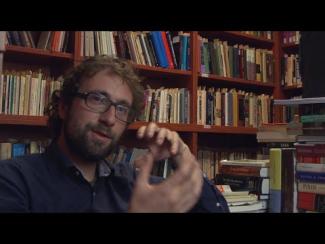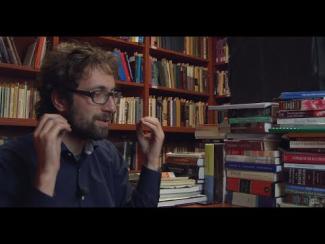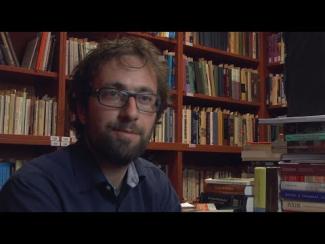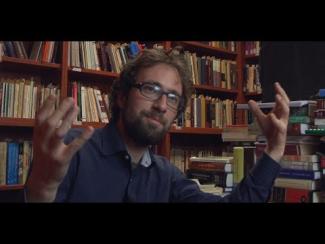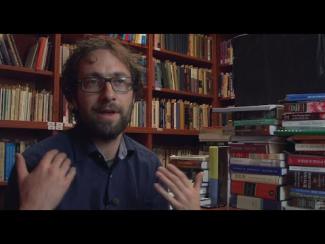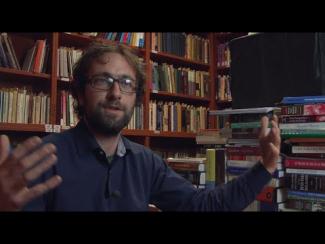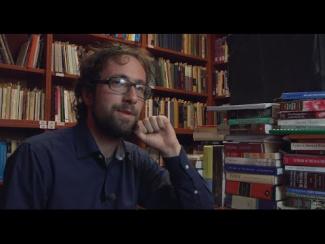The Yiddish Book Center's
Wexler Oral History Project
A growing collection of in-depth interviews with people of all ages and backgrounds, whose stories about the legacy and changing nature of Yiddish language and culture offer a rich and complex chronicle of Jewish identity.
Kamil Kijek's Oral History
Kamil Kijek, doctoral student in History at the Polish Academy of Science in Warsaw, was interviewed by Christa Whitney on April 30, 2013 at Wroclaw University, Poland. Kamil's mother, who is from a well-educated Jewish family in Odessa, met his father, a Polish Catholic from an uneducated family, in college. Although most of her family were refuseniks who eventually emigrated to Israel or the US, Kamil's parents settled in Poland. Kamil explains how his grandfather became culturally Russian and was fearful about expressing his Jewish identity; he rarely spoke Yiddish until he moved to Israel. Kamil grew up in a home that was neither Catholic nor Jewish in the religious or cultural sense. He did not realize that his mother's family was Jewish until he was eight. Kamil became aware of antisemitism as a young teenager. At seventeen he started meeting other young Jews in summer camps. The campers travelled around Poland restoring deserted Jewish cemeteries. He thinks that the search for his identity sparked his interest in Jewish studies. He is aware that his background is complex and that it is challenging to meld the pieces into a whole. Kamil did not feel connected to Yiddish as a child, although his grandmother spoke the language. When he started in Jewish studies, he learned Hebrew and held a negative attitude toward Yiddish. Eventually he realized that he couldn't pursue Jewish scholarship without learning Yiddish. He then took a one-month class in Tel Aviv. Through self-study he is now proficient enough to read the original sources necessary for his doctoral research. Kamil's doctoral thesis is on the socialization and political consciousness of Jewish youth in Poland in the inter-war years. He describes his general field of interest as Jewish history in Poland and Russia in the nineteenth and twentieth centuries. For the Polin Museum of the History of Polish Jews in Warsaw, Kamil interviewed elderly Jews from Dzierżoniów, his hometown in Poland, as well as former Jewish inhabitants of the region now living in Israel and the United States. Kamil talks about the important missions of the Polin Museum, one being that people who visit will learn that the history of the Jews in Poland is about more than antisemitism and the Holocaust. He talks about what he learned about the Holocaust in school and how the dialogue is becoming more honest and less defensive. On the other hand, the negative stereotypes live on even if there are few Jews left in most Christian Poles' orbits. Kamil says that Yiddish has become a crucial part of the Jewish studies curriculum in Poland, because first-person accounts of Jewish life in Poland are written in Yiddish. He considers the reasons that his students, mostly Christians but some with Jewish roots, are interested in taking his courses. He thinks it is important for the students to attend festivals and other events to meet non-academics who are truly living Jewish lives. Kamil is excited about the secular young Jews creating new Yiddish culture in the US and Israel today, but he believes that this will always be a small part of the Jewish experience. Polish Jews should continue to build connection with such folks because it is important to interact with others whose lives are not so dominated by the Holocaust. His advice to future Jewish historians is to not allow their work to be ideologized.
This interview was conducted in English.

